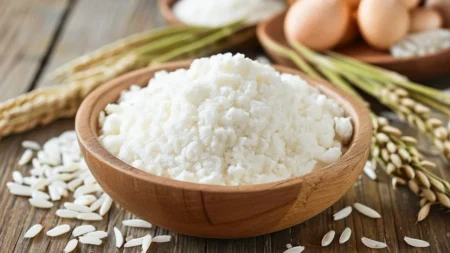Apricots are a delightful and versatile fruit that offer a wealth of nutritional benefits. Known for their vibrant color, soft texture, and sweet, tangy flavor, apricots have been enjoyed by people around the world for centuries. This article will explore the rich history, diverse varieties, and numerous health advantages of this beloved fruit, as well as provide insights into its culinary applications and versatility.

Key Takeaways
- Apricots are a nutrient-dense fruit that provide a range of health benefits.
- Apricots come in various sizes, shapes, and colors, offering diverse flavors and textures.
- Apricots are a versatile ingredient that can be enjoyed fresh, dried, or in preserves and jams.
- Incorporating apricots into a balanced diet can contribute to overall well-being and disease prevention.
- Apricot oil and kernel oil offer valuable benefits for skin and hair care.
Introduction to Apricots
Apricots, with their vibrant hues and captivating flavors, have captivated palates around the world for centuries. Tracing their origins back to the regions of modern-day China and Armenia, these delightful fruits have a rich and storied history that has contributed to their enduring popularity.
Origin and History
The name “apricot” is derived from the Latin word “praecocium,” meaning “early ripening,” a nod to the fruit’s ability to mature ahead of many other stone fruits. Apricots have been cultivated in these ancient regions for thousands of years, with evidence of their presence dating back to as early as 3000 BC. Their journey across continents and cultures has helped shape the diverse varieties we enjoy today.
Varieties and Appearance
Apricots come in a wide range of sizes, shapes, and colors, from small and round to large and oval, with hues ranging from pale yellow to deep orange. These differences in apricot appearance can be attributed to the numerous apricot varieties that have been developed over time. Each variety boasts its own unique texture, sweetness, and acidity, providing a delightful array of flavors for discerning palates. Whether savored fresh or transformed into culinary delights, the diversity of apricot varieties ensures there is an apricot to suit every taste.
| Apricot Variety | Appearance | Flavor Profile |
|---|---|---|
| Blenheim | Medium-sized, oval shape, orange-yellow skin | Sweet, with a slightly tart edge |
| Moorpark | Large, round shape, deep orange skin | Rich, complex flavor with a velvety texture |
| Royal | Medium-sized, oval shape, golden-orange skin | Balanced sweetness and acidity |
| Tilton | Small to medium, round shape, pale orange skin | Delicate, subtle flavor with a firm texture |
Nutritional Benefits of Apricots
Apricots are packed with essential vitamins and minerals that contribute to overall health and well-being. They are an excellent source of vitamin A, which supports eye health and immune function, as well as vitamin C, which aids in collagen production and boosts the body’s defenses against illness. Apricots also contain significant amounts of potassium, copper, and manganese, which are important for maintaining healthy blood pressure, bone development, and metabolism.
Rich in Antioxidants
In addition to their impressive vitamin and mineral profile, apricots are also rich in antioxidants, such as carotenoids and flavonoids, that help protect cells from damage and reduce the risk of chronic diseases. These powerful antioxidants can play a crucial role in supporting overall health and well-being.
Good Source of Fiber
Apricots are also a good source of dietary fiber, which promotes digestive health and can help with weight management. The fiber in apricots can aid in maintaining a healthy digestive system and may contribute to the prevention of certain chronic conditions, such as heart disease and type 2 diabetes.
Apricots in Culinary Delights
Apricots are a versatile fruit that can be enjoyed in a wide variety of culinary applications. Fresh apricots are often used in salads, desserts, and even savory dishes, providing a delightful balance of sweetness and acidity. Dried apricots are a convenient snack and can also be incorporated into baked goods, cereals, and trail mixes. Additionally, apricot preserves and jams are popular spreads for toast, scones, and as a filling for pastries. The natural sweetness and unique flavor of apricots make them a beloved ingredient in both sweet and savory creations.
Fresh Apricot Recipes
The juicy and flavorful nature of fresh apricots allows them to shine in a variety of dishes. From vibrant apricot salads to decadent apricot desserts, the possibilities are endless. Apricots can also add a touch of sweetness to savory apricot-glazed chicken or apricot-infused sauces for pork or seafood.
Dried Apricot Recipes
Dried apricots offer a convenient and flavorful way to incorporate this versatile fruit into your cooking and baking. They can be added to trail mixes, oatmeal, and granola for a nutrient-dense snack. Bakers can also utilize dried apricots in apricot-studded breads, apricot bars, and apricot-filled pastries.
Apricot Preserves and Jams
Apricot preserves and jams are a delightful way to enjoy the sweetness of apricots year-round. These versatile spreads can be used as a topping for toast, scones, and English muffins, or as a filling for tarts, turnovers, and other pastries. Apricot preserves can also add a touch of fruity flavor to marinades, glazes, and sauces for meats and vegetables.
| Fresh Apricot Recipes | Dried Apricot Recipes | Apricot Preserves and Jams |
|---|---|---|
| Apricot Salad | Apricot Trail Mix | Apricot Spread on Toast |
| Apricot Tart | Apricot Oatmeal | Apricot Filling for Turnovers |
| Apricot-Glazed Chicken | Apricot Granola Bars | Apricot Glaze for Meats |
| Apricot Chutney | Dried Apricot Bread | Apricot Jam on Scones |
Health Benefits of Apricots
Apricots are not only delicious, but they also offer a wide range of apricot health benefits and contribute to overall apricot wellness. The high apricot nutrition content, including an abundance of vitamin A and antioxidants, can help protect the eyes and support healthy vision. The fiber in apricots can aid in digestive health and may help to reduce the risk of certain chronic conditions, such as heart disease and type 2 diabetes.
Additionally, the potassium in apricots can help regulate blood pressure and support cardiovascular function. Incorporating apricot disease prevention properties into a balanced diet can contribute to overall well-being and reduced risk of various health issues.
| Health Benefit | Apricot Nutrient | Potential Impact |
|---|---|---|
| Eye Health | Vitamin A, Antioxidants | Protects eyes, supports vision |
| Digestive Health | Fiber | Aids in digestion, reduces chronic disease risk |
| Cardiovascular Health | Potassium | Regulates blood pressure, supports heart function |
Incorporating apricots into a balanced and nutrient-rich diet can contribute to overall well-being and help prevent the development of various health conditions.
Apricots in Skin Care and Beauty
Apricots are not only nutritious when consumed, but they also offer valuable benefits for skin and hair care. Apricot oil, extracted from the fruit’s kernels, is rich in fatty acids and vitamins that can nourish and hydrate the skin, helping to improve its texture and appearance. Apricot kernel oil, on the other hand, is often used in hair care products due to its ability to moisturize and strengthen hair strands, promoting healthier, more vibrant locks. The versatility of apricots extends beyond the culinary realm, making them a valuable addition to various self-care and beauty routines.
Apricot Oil for Skin
The apricot oil derived from the fruit’s kernels is a rich source of vitamins A and E, as well as oleic and linoleic acids. These nourishing compounds work together to hydrate and nourish the skin, helping to maintain a healthy, radiant complexion. Apricot oil is often used in facial moisturizers, serums, and body oils, providing a natural solution for dry, dull skin.
Apricot Kernel Oil for Hair
Apricot kernel oil is a popular ingredient in hair care products due to its ability to penetrate the hair shaft and provide deep conditioning. This lightweight oil is quickly absorbed, leaving hair soft, manageable, and with a natural shine. Additionally, the antioxidants in apricot kernel oil can help protect hair from environmental stressors and promote stronger, healthier locks.
Growing Apricots at Home
For those with a green thumb, growing apricots at home can be a rewarding experience. Apricot trees thrive in temperate climates with well-drained, fertile soil and ample sunlight. When planting an apricot tree, it is important to consider factors such as climate, soil composition, and proper spacing to ensure the tree’s optimal growth and fruit production.
Climate and Soil Requirements
Apricot trees require a temperate climate with distinct seasons and moderate temperatures. They prefer an environment with cool winters and warm, dry summers. The soil should be well-drained, nutrient-rich, and slightly acidic, with a pH range of 6.0 to 7.0. Proper soil preparation, including amending the soil with organic matter, can greatly benefit the growth and productivity of apricot trees.
Planting and Caring for Apricot Trees
When planting an apricot tree, it is crucial to select an appropriate location that receives at least six hours of direct sunlight per day. The tree should be spaced at least 20 feet apart to allow for adequate airflow and prevent disease. Proper pruning, pest management, and consistent watering are essential for maintaining the health and fruit production of apricot trees. With the right care and attention, home gardeners can enjoy the sweet, juicy rewards of homegrown apricots.
FAQ
What are the health benefits of apricots?
Apricots are packed with essential vitamins and minerals, including vitamin A, vitamin C, potassium, copper, and manganese. They are also rich in antioxidants and fiber, which can help support eye health, immune function, blood pressure regulation, and digestive well-being.
How can apricots be used in cooking and baking?
Apricots are a versatile fruit that can be enjoyed in a wide variety of culinary applications. Fresh apricots can be used in salads, desserts, and savory dishes, while dried apricots make a convenient snack and can be incorporated into baked goods, cereals, and trail mixes. Apricot preserves and jams are also popular spreads and fillings.
What are the different varieties of apricots?
Apricots come in a range of sizes, shapes, and colors, from small and round to large and oval, with hues ranging from pale yellow to deep orange. Different varieties of apricots can vary in their texture, sweetness, and acidity, offering a diverse array of flavors to explore.
How can apricots be used in skin care and beauty routines?
Apricots offer benefits beyond their culinary uses. Apricot oil, extracted from the fruit’s kernels, is rich in fatty acids and vitamins that can nourish and hydrate the skin. Apricot kernel oil is often used in hair care products due to its ability to moisturize and strengthen hair strands.
What are the climate and soil requirements for growing apricot trees?
Apricot trees thrive in temperate climates with well-drained, fertile soil and ample sunlight. When planting an apricot tree, it is important to consider factors such as climate, soil composition, and proper spacing to ensure the tree’s optimal growth and fruit production.











